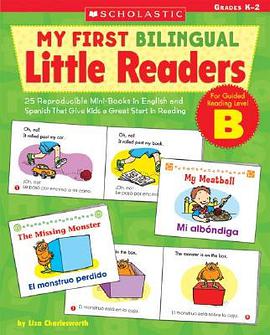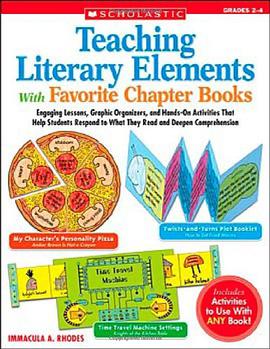

具体描述
This book proposes a new way to conceive of scientific literacy, as it has emerged from two research agendas that the authors have been pursuing independently but which have converged conceptually. This book presents a new and entirely different perspective than previous books on scientific literacy in that it valorizes the capacities of human beings to participate in worldly affairs and to change their life contexts. The book is important because it portrays a positive perspective, one that embodies the capacity of all human beings (independently of knowing that scientists think that protons and neutrons constitute the atomic nucleus) to use science both as a contested field and as tool in order to change the world. For example, the youth in Chapter 4 who transform an empty inner-city lot from an area for dealers and pushers to a community garden, or the seventh-grade students in Chapter 7, who generate knowledge that is subsequently being used by environmentalists that work in and transform their community. Therefore it is the authors hope that students welcome the opportunity to study and participate in science education, not in the hope of becoming scientists, but for participating in public affairs where science plays a part.
作者简介
目录信息
读后感
评分
评分
评分
评分
用户评价
我花了很长时间才读完这本著作,因为它要求读者投入极大的认知精力去消化其中复杂的哲学思辨和跨学科论证。坦白说,前半部分的理论构建相当密集,充满了对实证主义、建构主义等科学哲学流派的细致梳理,对于非学术背景的读者来说,门槛略高。然而,一旦越过那道坎,后续的讨论便如醍醐灌顶般开阔。作者对于“科学实践的社会性”的论述尤其发人深省,指出科学成果并非真空中的真理,而是特定历史和社会条件下的产物,这极大地消解了我过去对科学的“神圣化”迷思。它促使我反思,我们应该如何更负责任地使用科学的权威性,以及如何确保科学研究的方向符合更广泛的公共利益。这本书的价值在于,它挑战了我们对于“客观性”的肤浅理解,引人深思,但确实需要读者沉下心来,反复咀嚼其深层含义。
评分这本书简直是打开了我对“科学素养”这个概念的全新认识。它没有停留在传统教科书那种枯燥的知识点堆砌上,而是真正深入地探讨了我们身处这个技术爆炸的时代,究竟需要具备什么样的思维模式和判断力。我尤其欣赏作者对于“科学”定义边界的拓宽,不再将之局限于自然科学的范畴,而是将其视为一种批判性思维和解决问题的框架,这对于理解社会议题、媒体信息乃至日常决策都至关重要。书中的案例分析非常引人入胜,比如如何辨识伪科学论调,以及在数据爆炸时代如何有效筛选和解读信息。它不是教你“知道什么”,而是教你“如何思考”。读完后,感觉自己的“信息免疫系统”得到了极大的加强,面对那些充满诱惑力的、看似科学的断言时,能更迅速地找到逻辑上的漏洞。这种能力的提升,比记住任何一个复杂的公式都要宝贵得多,它深刻地影响了我的世界观。
评分这本书的结构设计堪称一绝,逻辑推进犹如精密的钟表机械,层层递进,每一步都有坚实的论据支撑。作者并未满足于停留在“科学教育需要改进”这种老生常谈的层面,而是深入剖析了权力结构如何塑造我们对科学的认知,以及资本逻辑如何渗透到科学传播的每一个环节。这种对宏大叙事的解构,让我对当前的科研资助模式和媒体对科学新闻的片面报道有了更深刻的批判视角。读到关于“技术乐观主义”局限性的章节时,我感到一种强烈的震撼,因为它精准地指出了我们社会中普遍存在的,对技术解决方案的盲目崇拜所带来的潜在风险。全书的论证力度强劲,观点鲜明,对希望构建更具批判性思维的读者来说,无疑是一份宝藏,它迫使你重新审视那些你本以为早已接受的“事实”。
评分与其说这是一本关于科学素养的书,不如说这是一本关于“现代公民如何有效参与公共生活”的指南。作者的叙事视角非常贴近普通人的日常困境,从气候变化辩论到疫苗犹豫,无不体现出当前社会信息生态的混乱。我特别喜欢作者提出的“情境化素养”的概念,即科学素养并非一套固定不变的知识库,而是在特定情境下调动相关知识、工具和态度的动态过程。这种灵活性在瞬息万变的技术世界中显得尤为珍贵。文字风格活泼而富有洞察力,充满了对读者既有的认知偏见的温柔纠正,而不是居高临下的说教。它让我开始以一种更具同理心的方式去看待那些持有不同科学观点的人们,理解其背后的文化和认知框架,从而推动了更有效的沟通和理解,而不是简单的对立和驳斥。
评分说实话,这本书的阅读体验是充满挑战和回报的混合体。它的主题宏大,横跨了认知心理学、社会学和科学史,试图勾勒出一个二十一世纪公民所需的全新素养蓝图。我印象最深的是作者对“不确定性”的拥抱态度。在科学领域,尤其是在前沿研究中,确定性往往是一种奢望,而大众却倾向于要求绝对的答案。这本书出色地阐释了为什么理解和容忍科学中的模糊性,本身就是一种高级的素养。作者用了大量篇幅来讨论教育系统如何系统性地扼杀了对这种不确定性的耐心。如果说有什么遗憾,那就是在某些处理复杂统计模型的部分,略显晦涩,需要多次回读才能完全把握其精髓。但总的来说,这是一部极具前瞻性和启发性的作品,它为如何培养下一代面对复杂世界的适应力,提供了坚实的理论基础和可操作的理念框架。
评分 评分 评分 评分 评分相关图书
本站所有内容均为互联网搜索引擎提供的公开搜索信息,本站不存储任何数据与内容,任何内容与数据均与本站无关,如有需要请联系相关搜索引擎包括但不限于百度,google,bing,sogou 等
© 2026 book.wenda123.org All Rights Reserved. 图书目录大全 版权所有




















